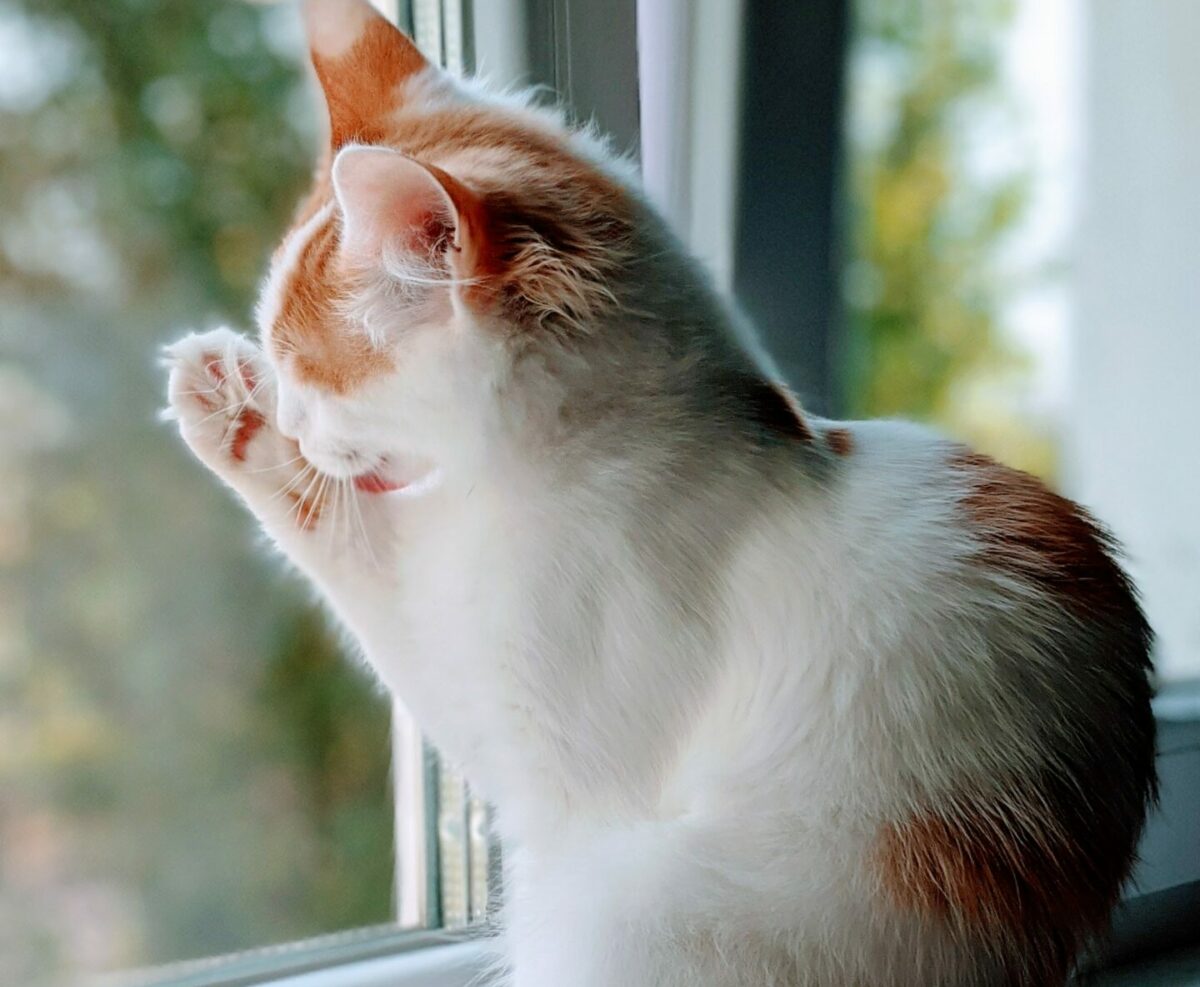Let’s get to know this brilliant cat breed – The Turkish Van Cat Breed.
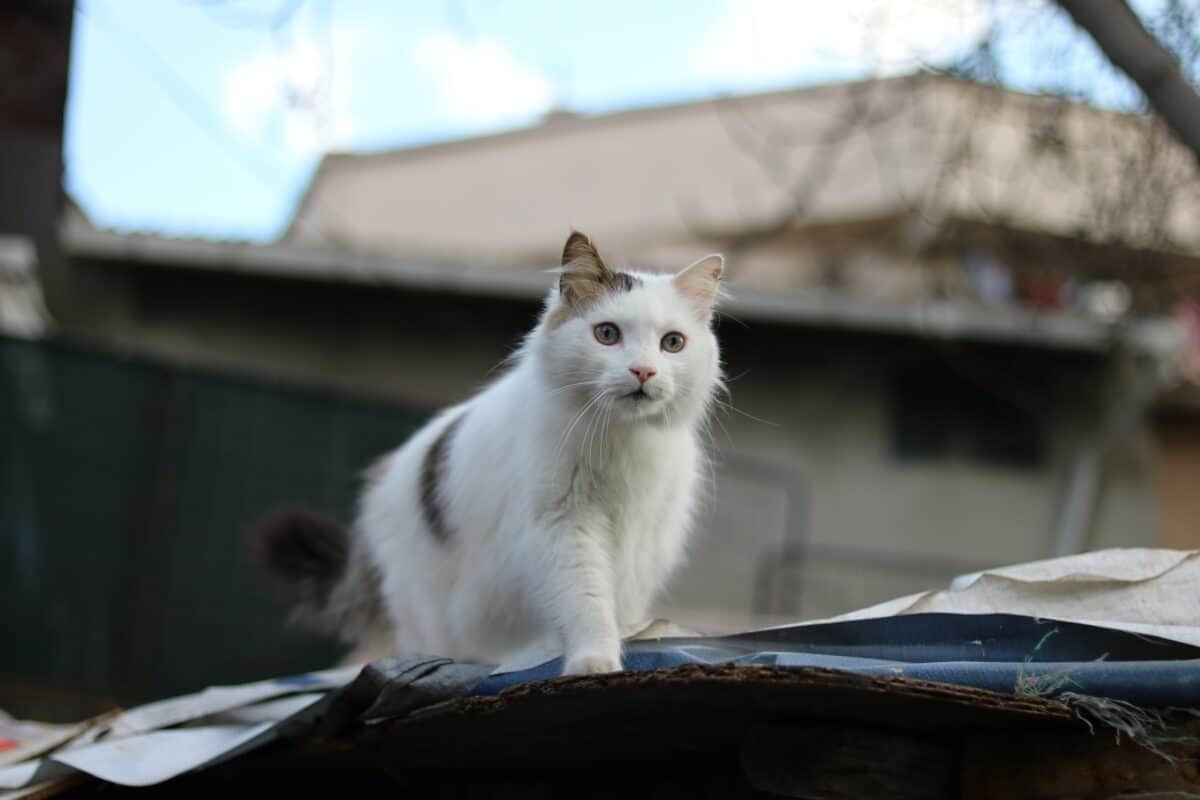
The Turkish Van is an ancient breed of cat that is beloved for its unique patterns, intelligence, and independent nature. It’s a magnificent animal that makes a wonderful pet for those who appreciate the challenge of owning an independent feline companion.
This medium-large cat has semi-long hair and a distinctive white coat patterned with splotches of color on the back, tail, and head. The color may be any combination from silver to red, cream to black, and all shades. Let’s find out more about the breed.
History Of The Breed
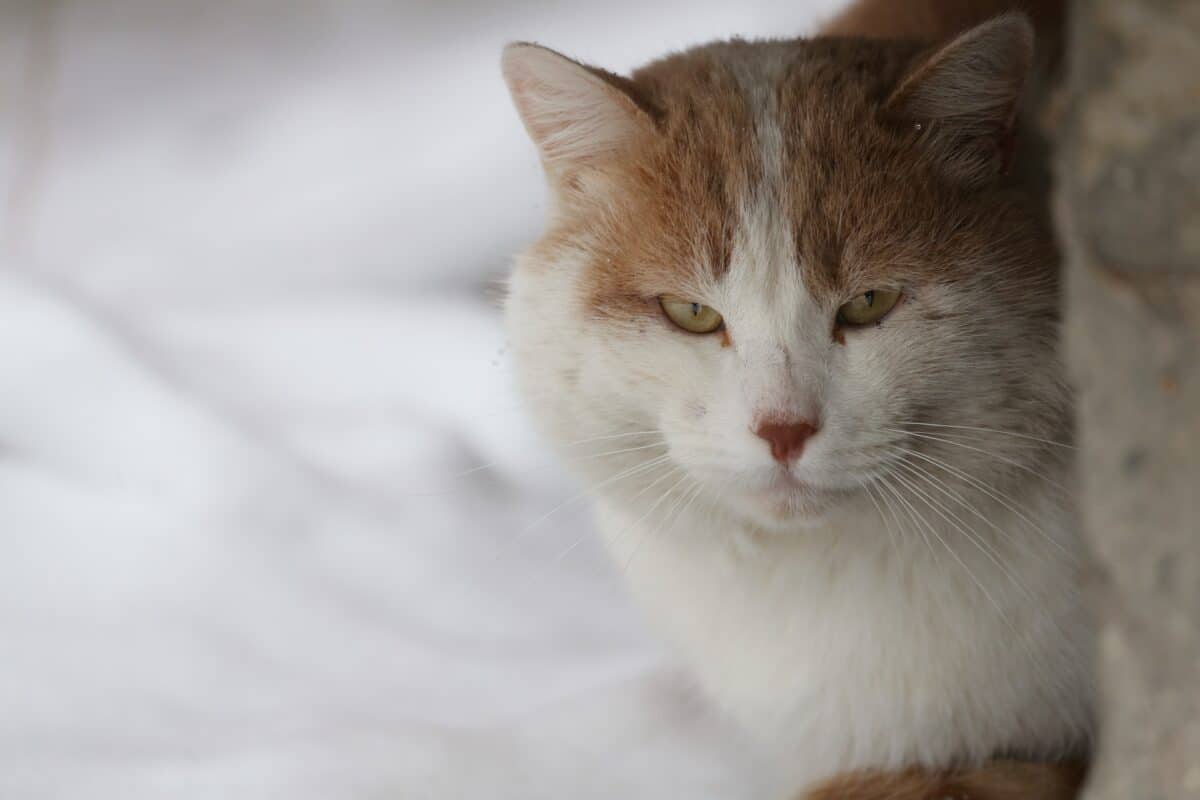
The Turkish Van originated in Turkey, where breeders have known it since the 16th century as the ‘Van Kedisi’ (translation: Cat from Van). This breed was likely developed in two distinct populations; one lived in mountainous areas near Lake Van, Turkey’s largest lake, while the other lived near plains to the southwest of Ankara.
In 1955, two British women were visiting Turkey when they noticed these cats and brought some back home, leading to increased interest in this breed in Europe and America later on.
Interested in the predecessors of the Turkish Van cat? Learn more about the origins of our feline friends!
General Physical Characteristics
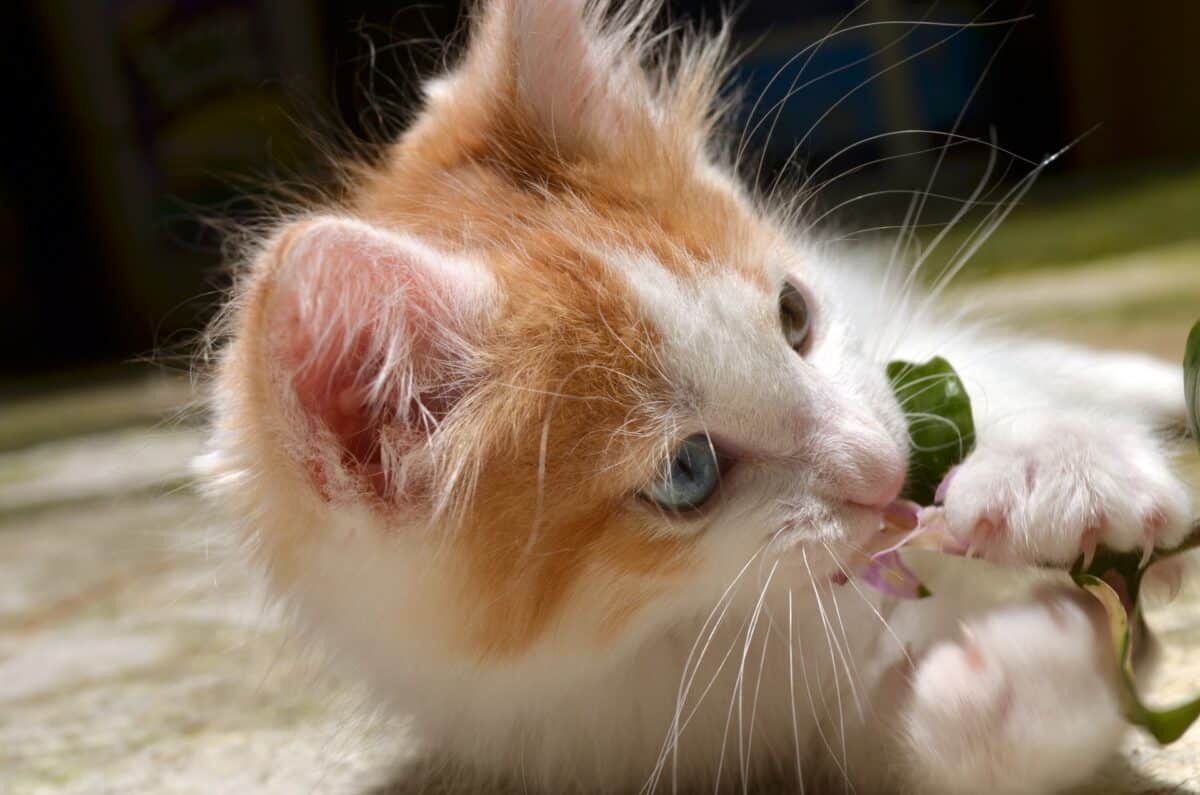
The Turkish Van is a cat with a thick, soft, and silky double coat that is easy to groom because it doesn’t shed much. It must be brushed once or twice a week to avoid getting tangled.
Unlike other breeds like Persians or Angoras, Turkish Vans don’t produce much natural oil in their coats, which makes them less able to handle extreme weather conditions. They weigh up to 20 pounds, about average for domestic house cats, and Turkish Vans are good pets if you want a beautiful and medium-sized companion.
Activity Level And Exercise Needs
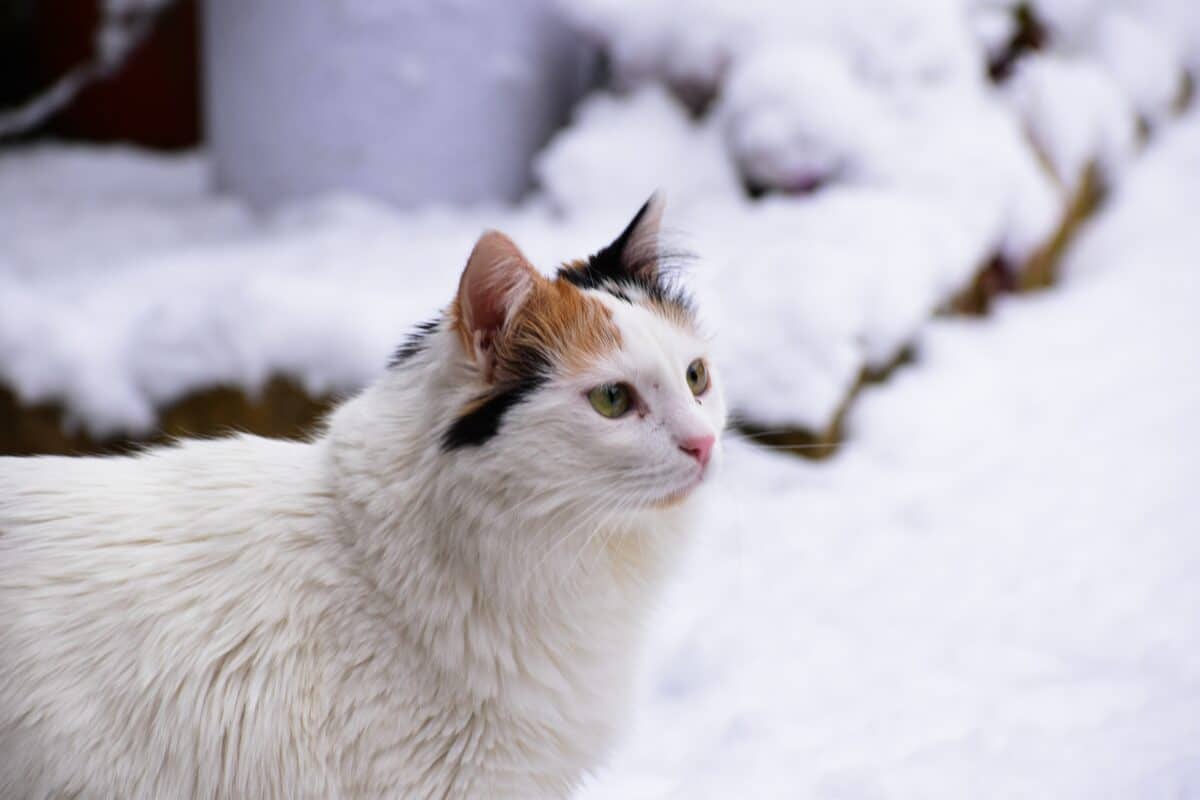
The Turkish Van is an active breed of cat that loves to be on the move! They have a good amount of energy and will enthusiastically explore their environment.
Moreover, they do not have to exercise like other breeds. Regular playtime with interactive toys or puzzle games can help prevent boredom and stimulate their minds.
Intelligence And Trainability
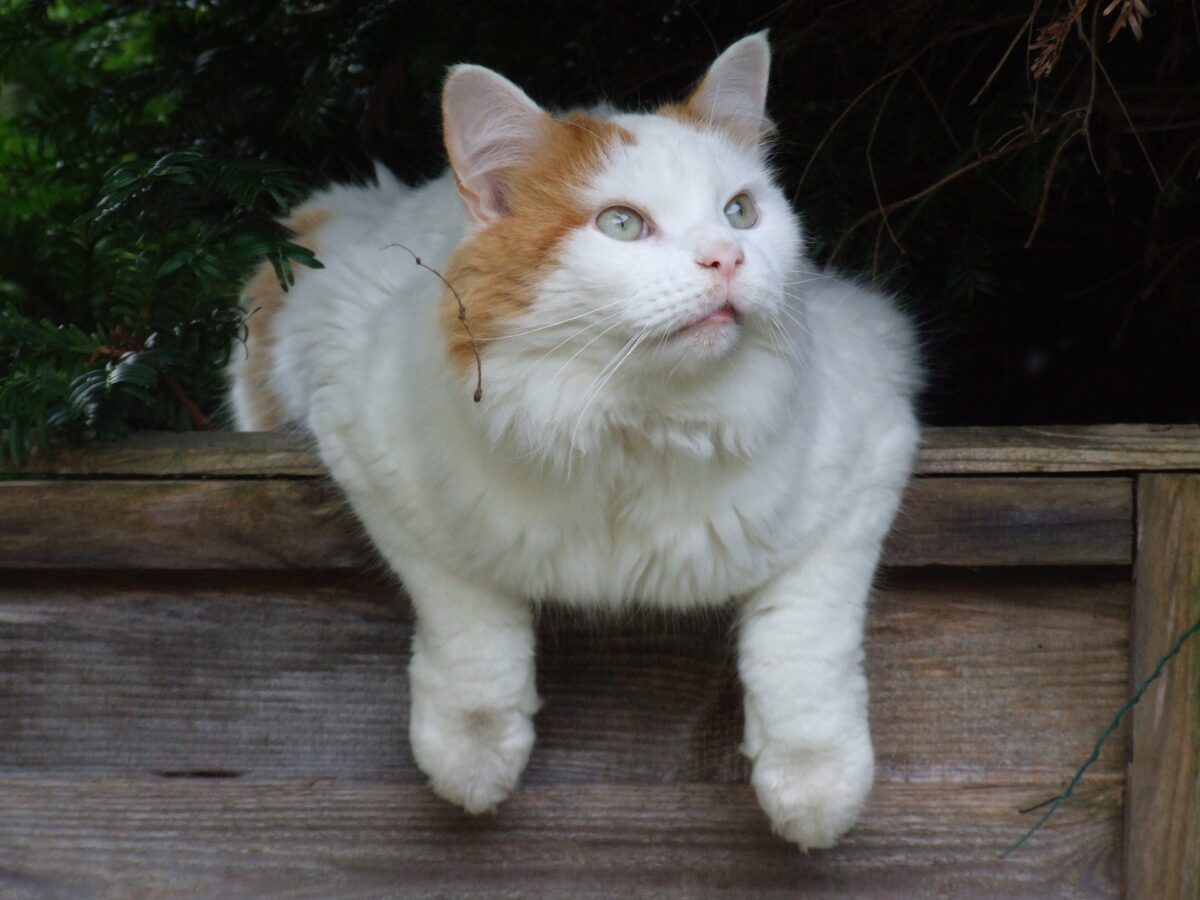
These cats are easy to train because they quickly learn new tricks. If you consistently reward them for good behavior, they can know basic commands like “sit” or “come.” Also, you can teach them to respond to hand signals or clicker training because they are naturally curious.
Socialization Requirements
Turkish Vans have a natural independence that makes them less friendly than other cat breeds. Owners of these cats need to start socializing kittens at an early age to ensure that the animal is comfortable around people, other cats, dogs, or any other living creatures it might encounter, both indoors and outdoors.
Early Socialization should allow the kitten’s daily interactions with animals and people to grow up trusting humans rather than becoming scared or fearful when encountering unfamiliar faces or animals later in life.
Check out the importance of the Socialization of dogs and cats.
Grooming Needs And Shedding Tendencies
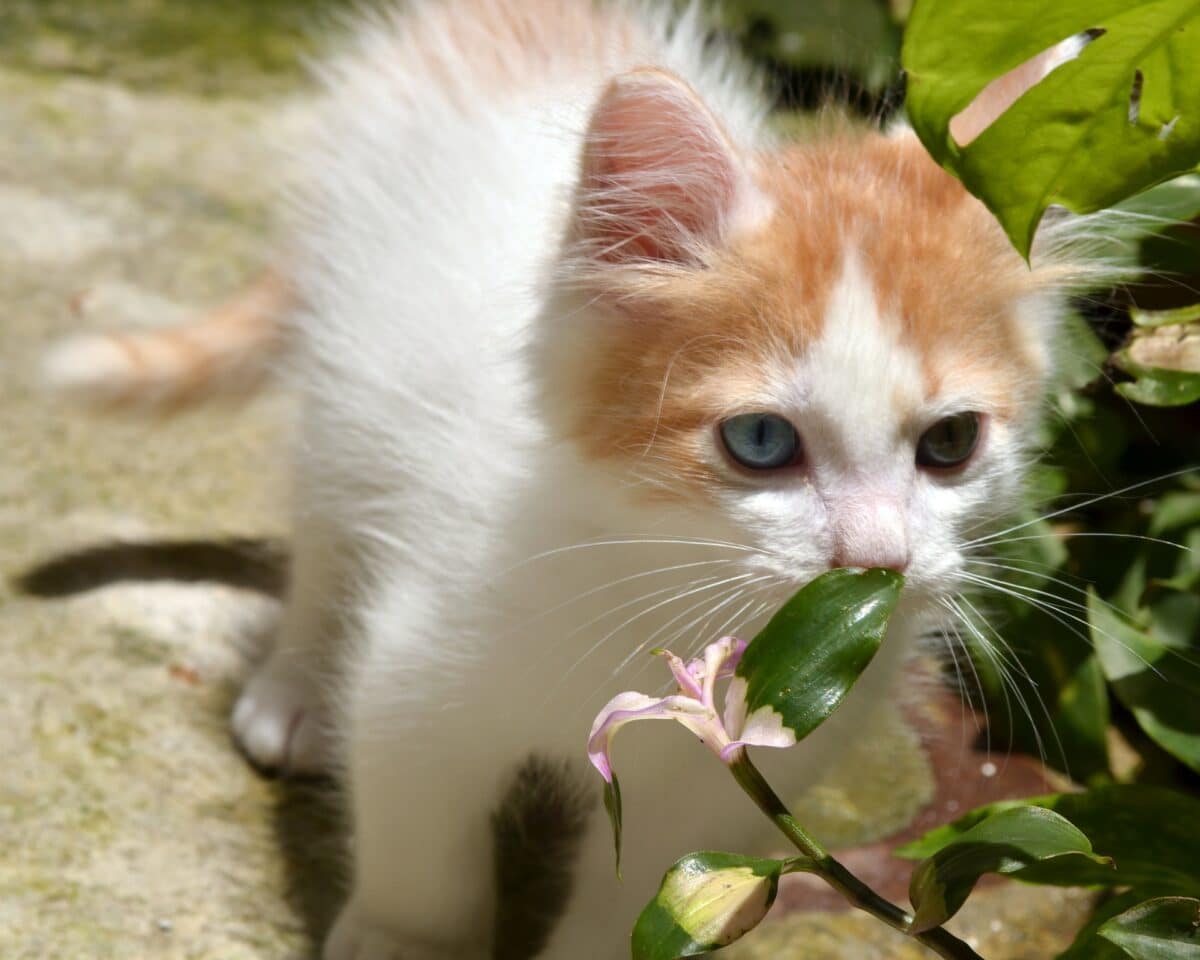
The Turkish Van cat needs more grooming than other cats because of their semi-long hair.The coat is to be brushed twice a week, with a special brush for long-haired cats. It will stop their fur from getting tangled and reduce how many piles they lose. They do lose hair, but not as much as some other breeds.
Dietary Needs For Healthy Living
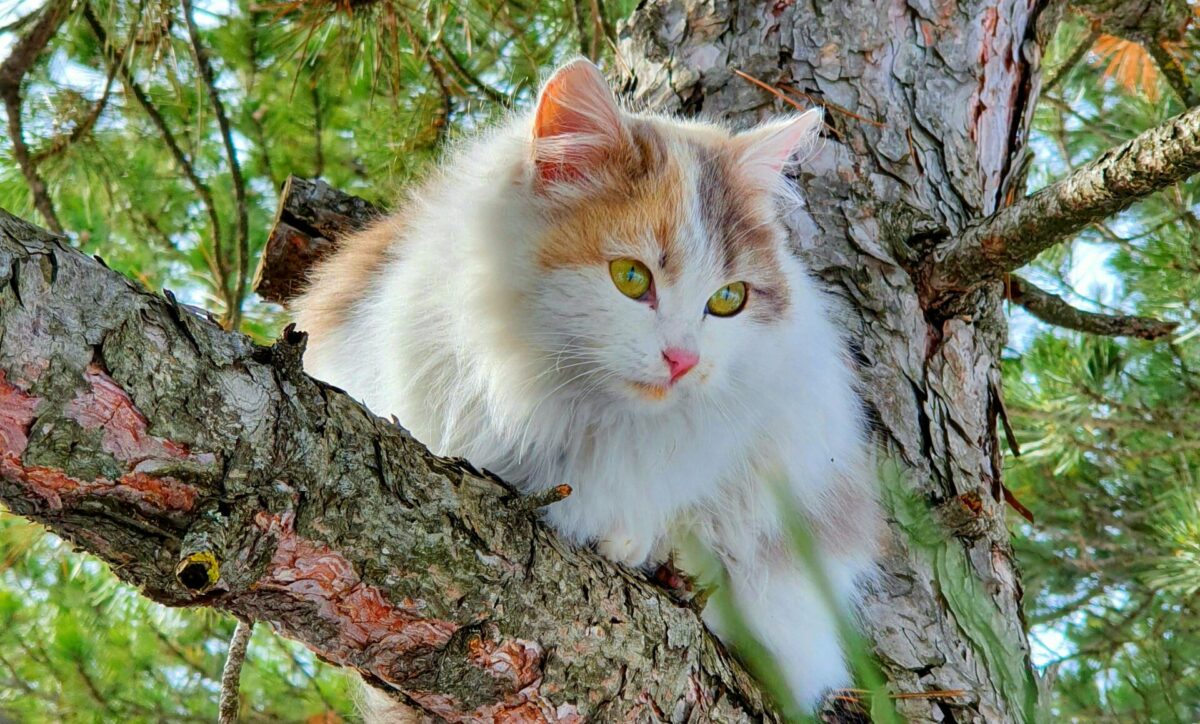
The Turkish Van must have access to a balanced diet of high-quality cat food designed specifically for this breed or another indoor cat breed of similar size and weight. Most cats enjoy wet food mixed with dry kibble, and some may need additional supplements such as taurine or omega-3 fatty acids, depending on their needs.
Treats can be included sparingly but should always be consumed in moderation. Fresh water must always be available for the Turkish Van, and access to clean litter boxes; are essential for healthy living in this cat breed.
Potential Health Issues
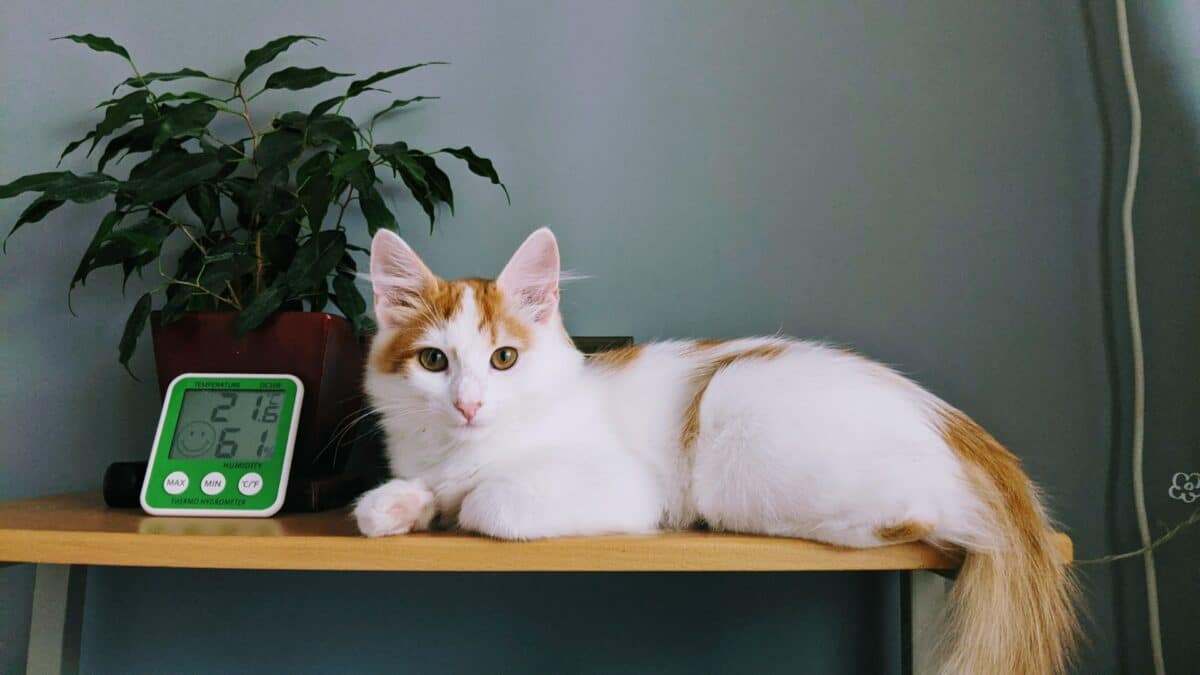
The Turkish Van is a generally healthy breed of cat. However, some health issues are linked to the species. These include:
• Heart Disease
Some cats may develop heart disease or cardiomyopathy due to genetic predisposition.It is important to treat these conditions early, as they may lead to congestive heart failure or other serious problems.
• Kidney Disease
Some cats are predisposed to develop renal issues. Such as renal cystadenocarcinoma, an aggressive kidney cancer that can be fatal if left untreated.
• Allergies
Turkish Vans are susceptible to skin allergies. Treatment involves topical ointments or steroid injections, depending on the severity of symptoms and the underlying cause of the allergy.
• Skin Conditions
While not common, some Turkish Vans may develop skin conditions such as feline acne or ringworm. These conditions must be treated immediately by a veterinarian to avoid further complications.
What Makes A Turkish Van Special?
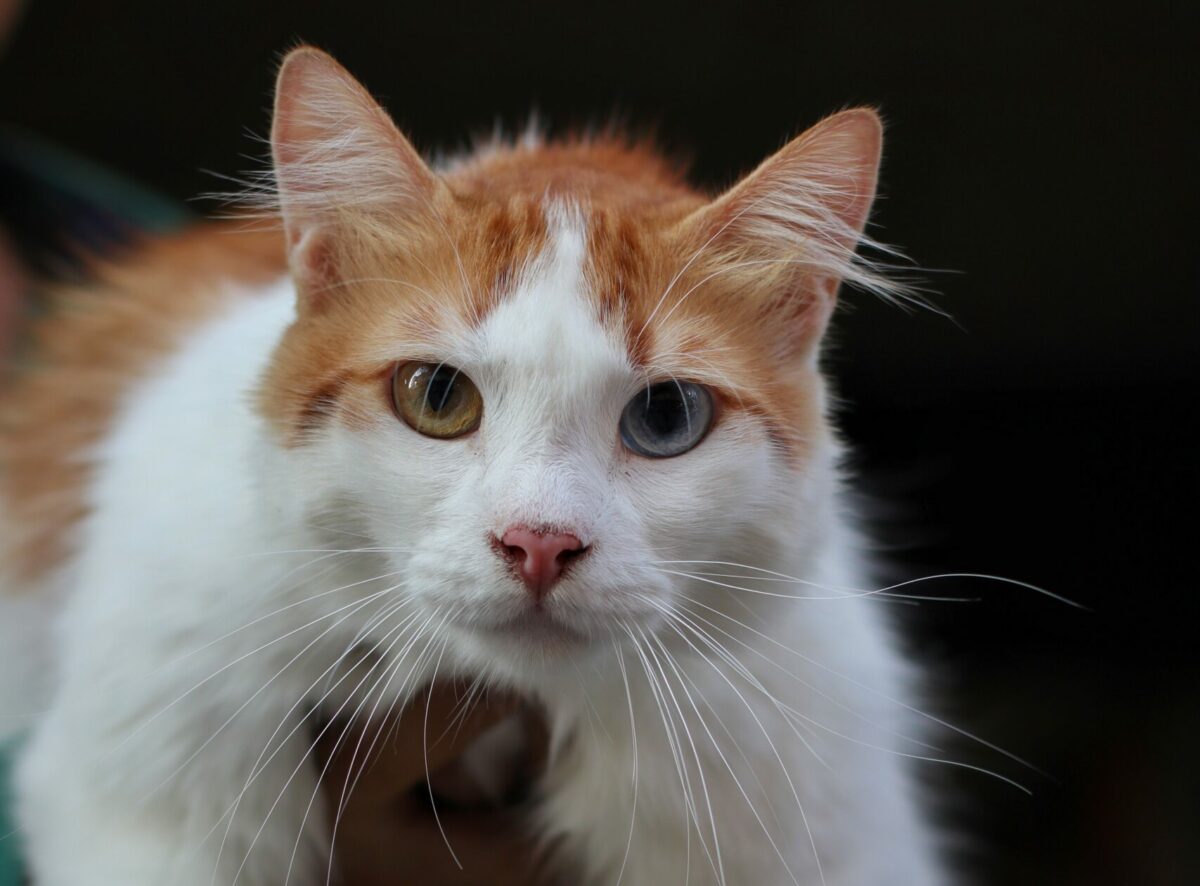
The Turkish Van is an exceptionally unique breed of cat. The combination of its semi-long hair and striking white color pattern makes it stand out from other cats.
The Turkish Van is known for their intelligence and independence. This makes them the perfect pet for those seeking a challenge. Unlike other cats, Vans have strong muscles that allow them to jump high distances and climb trees and walls easily.
The Turkish Van also has a long history. The Turkish Van is one of the oldest known cat breeds in the world. Originating from the Lake Van region in Eastern Turkey, it is believed that these cats came with the Crusaders during the Middle Ages.
There is a chance that they are related to the domesticated cats in ancient Egypt due to their unusual markings and eye coloration. It makes them particularly special compared to other breeds, as they have an exciting past!
Due to their slightly water-resistant coats, these cats don’t mind swimming. If you have a Turkish Van pet, you can have fun teaching them how to swim and even let them explore your backyard pool or pond!
All in all, owning a Turkish Van cat offers a unique experience. With their smart, independent nature, strength and agility, loyal, affectionate demeanor, and exciting origin story – you won’t regret getting this fascinating feline companion!
Wrap-Up
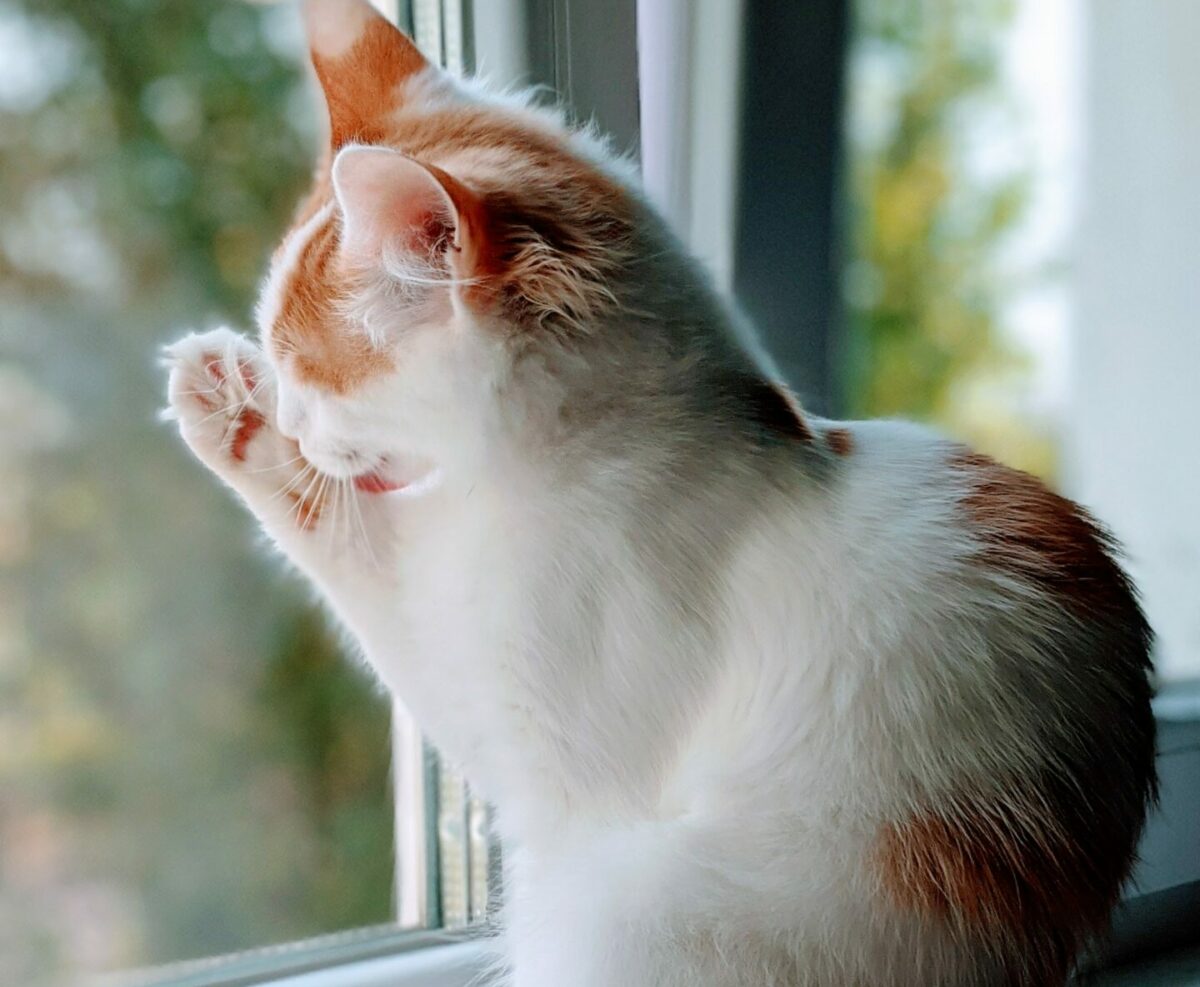
The Turkish Van is a caring and intelligent cat breed. Many love them for their distinctive coat, intelligence, and independent nature. they are curious creatures that loves to explore and learn new things.
The Turkish Van is known for being affectionate and loyal toward their owners. Making them perfect cuddle buddies. With regular grooming, health checkups, and lots of love and attention, the Turkish Van can make a great addition to any home.
Interested in getting to know other adorable cat breeds? Next up, Birdman Cat, Bombay Cat and Balinese Cat
- Mom and Daughter Takes Hen and Chicks to the Store in Backpacks - April 24, 2024
- Watch: German Shepherd thinks he’s dying at the grooming salon - April 24, 2024
- Watch: Cats Meet Babies for the First Time - April 24, 2024

